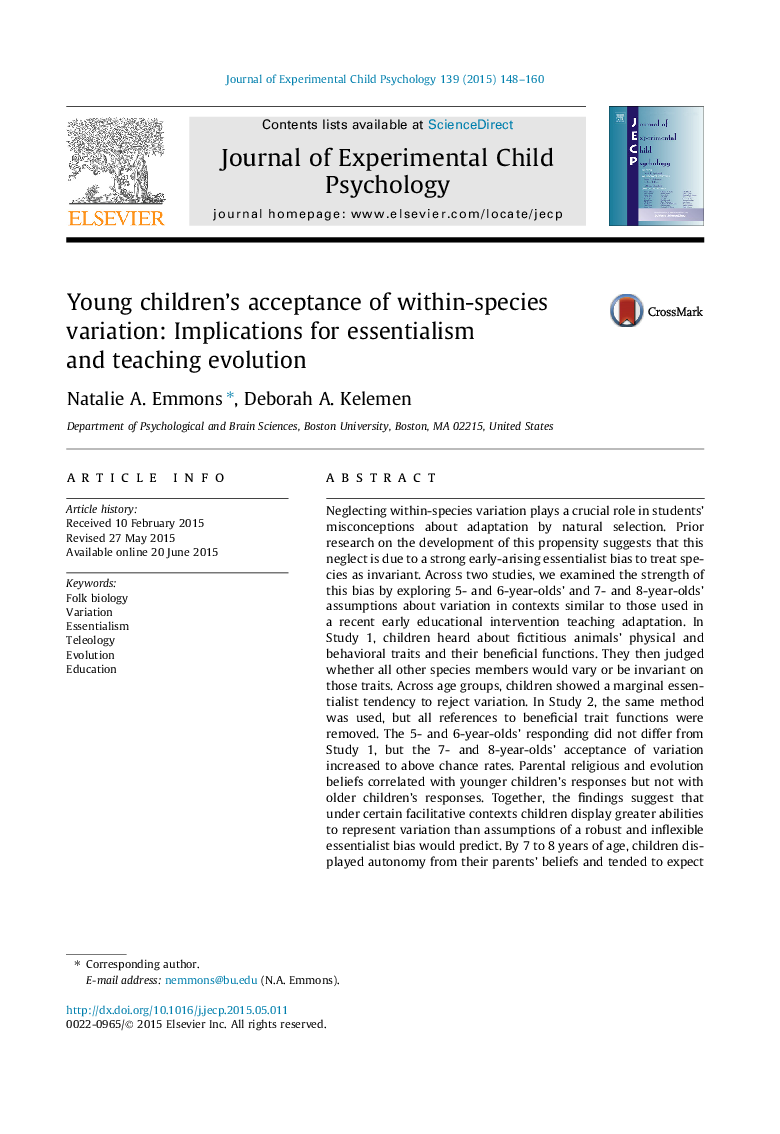| کد مقاله | کد نشریه | سال انتشار | مقاله انگلیسی | نسخه تمام متن |
|---|---|---|---|---|
| 917954 | 1473473 | 2015 | 13 صفحه PDF | دانلود رایگان |
• Young children’s intuitions about within-species variation were examined.
• Under certain contexts, children accept variation more than is currently assumed.
• 7-to-8-year-olds robustly accept variation when trait functions are not described.
• Results suggest that interacting cognitive biases may impede variation acceptance.
• Findings have implications for providing effective evolutionary instruction.
Neglecting within-species variation plays a crucial role in students’ misconceptions about adaptation by natural selection. Prior research on the development of this propensity suggests that this neglect is due to a strong early-arising essentialist bias to treat species as invariant. Across two studies, we examined the strength of this bias by exploring 5- and 6-year-olds’ and 7- and 8-year-olds’ assumptions about variation in contexts similar to those used in a recent early educational intervention teaching adaptation. In Study 1, children heard about fictitious animals’ physical and behavioral traits and their beneficial functions. They then judged whether all other species members would vary or be invariant on those traits. Across age groups, children showed a marginal essentialist tendency to reject variation. In Study 2, the same method was used, but all references to beneficial trait functions were removed. The 5- and 6-year-olds’ responding did not differ from Study 1, but the 7- and 8-year-olds’ acceptance of variation increased to above chance rates. Parental religious and evolution beliefs correlated with younger children’s responses but not with older children’s responses. Together, the findings suggest that under certain facilitative contexts children display greater abilities to represent variation than assumptions of a robust and inflexible essentialist bias would predict. By 7 to 8 years of age, children displayed autonomy from their parents’ beliefs and tended to expect variation. However, priming their teleological intuitions undermined their non-essentialist expectations. Theoretical and educational implications are discussed.
Journal: Journal of Experimental Child Psychology - Volume 139, November 2015, Pages 148–160
